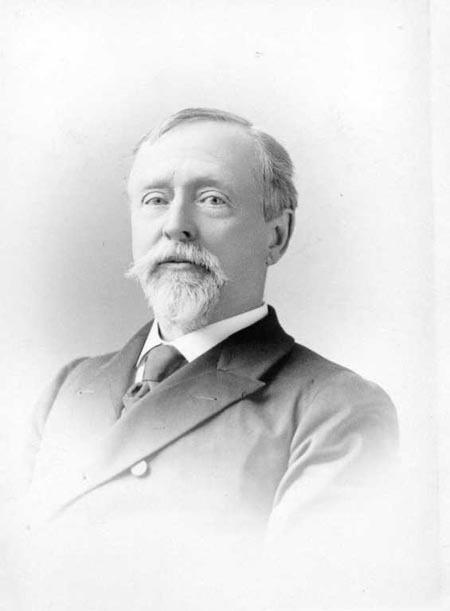Joseph Henry Thayer
- Bussey Professor of New Testament Criticism and Interpretation, 1884-1901
Born in Boston, Massachusetts, on November 7, 1828, Joseph Henry Thayer began his long association with Harvard Divinity School in 1883, when he joined the faculty as instructor of the New Testament.
Having graduated from Harvard College in 1850, Thayer entered the Andover Theological Seminary, completing his course of study in 1857. After a brief stint as a pastor in Salem, Thayer joined the faculty of the Andover Theological Seminary, a position he held from 1864 to 1882. At Harvard, Thayer briefly served as Instructor of the New Testament, but soon became the Bussey Professor of New Testament Criticism and Interpretation, a position he held until 1901.
In 1895, Thayer proposed the creation of the American School of Oriental Research. Soon thereafter, the school opened its doors in Jerusalem. (Among the directors of the school is David Gordon Lyon, also highlighted in this exhibit). Much of Thayer's scholarship focuses on translation, including his best-known work, Greek-English Lexicon of the New Testament, to which he devoted nearly twenty years.
Thayer retired in 1901, and was replaced as Bussey Professor of New Testament Criticism and Interpretation by James Hardy Ropes.
"Editorial," The Christian Register, Mar. 16, 1893, p. 1:
Prof. Thayer advises young sermon-writers not to read sermons on the theme which engages their attention until after they have completed their task. He says that a sermon by a great preacher is rank poison in such a case. Robert Collyer's new sermons, "Things Old and New," are of this class. They are so catching that, using the same text or speaking on the same subject immediately after reading one of them, it would be almost impossible to avoid imitation. The first question one asks is not, "How did he think of that?" but, "Why didn't I think of it?" By the way, the publication of so many good sermons is spoiling all the good texts and striking topics. In the good old days a hundred men might be at the same time be working on the same text and the same subject without borrowing or being charged with plagiarism. But now, when a good text or title ingeniously treated is reported by telegraph or printed by the thousand, the natural rights of the ordinary preacher seem to be taken from him. What little originality he had is pre-empted by the men of genius. Many a good sermon is made useless for a hard-working minister by the publication of some other sermon which, whether better or not, covers the same ground in a similar way.
Additional source of information:
Dictionary of American Biography. New York: C. Scribner's Sons, 1928-1958.
